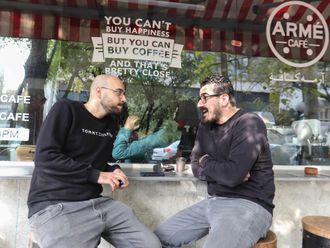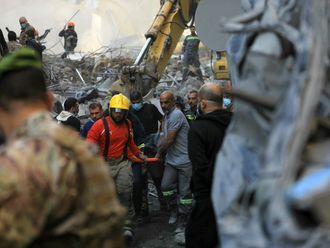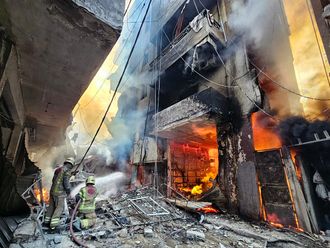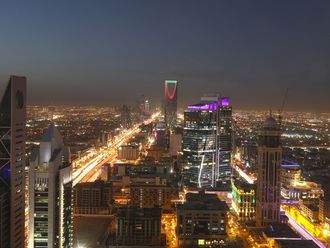Amman: Jordan will hold a parliamentary election on Tuesday which is expected to strengthen the grip of tribal candidates, who are loyal to the monarchy, following a boycott by the Islamists, the main opposition group.
The elections mark the sixth multi-party vote, since the late King Hussain launched democratisation in 1989, after price riots, reviving parliamentary government after decades of martial law.
Candidates are competing for 120 seats, of which 24 are for women and minorities. Out of nearly seven million Jordanians, 2.4 million are registered as voters over the age of 18.
Why are the Islamists boycotting the vote?
The Islamic Action Front (IAF), the political arm of the Muslim Brotherhood, says elections are meaningless as successive governments have ignored parliament.
The Islamists say the electoral system is unrepresentative and encourages certain voting districts to vote against them. They are also protesting against, what they say is, an erosion of democratic gains, which the country has acquired since 1989, curbs on civil rights and a stifling of dissent in recent years.
Analysts, diplomats and politicians say representation for the Islamists could improve the assembly's image, while putting pressure on the government. Critics say their absence deals a blow to Jordan's political system and means the next parliament will be a drab pro-government talk shop.
Why is the electoral system so controversial?
King Abdullah dissolved parliament last November, halfway through its four-year term, and a month later, approved a new government led by palace aide Samir Al Rifai, in the hope of speeding up electoral changes, and bringing political reform and broader representation.
The electoral law, enacted last May, after much debate, failed to do away with a division of seats that favoured rural, tribal districts, the basis of support for the Hashemite dynasty, over the largely Palestinian-populated cities, which are Islamic strongholds and highly politicised.
The arrangement of electoral districts has boosted the chances of influential pro-government candidates, who could win with far fewer votes in the new sub-districts.
It also makes the government vulnerable to charges of manipulating the elections, especially since it rejected demands for a mixed proportional representation system, which advocates say would promote national party politics and reduce representation based purely on tribal allegiances.
Gerrymandering is a major concern and may explain the alienation of Islamists, Palestinians and liberals, who feel the system is heavily weighted towards less populous, tribal areas in the hinterland, away from the major Palestinian-dominated cities.
The Maan electoral zone in the south, which has a strong tribal following, elects seven seats for a population of 143,000, while the capital Amman elects 28 seats for 2.3 million people.
Only a minority of candidates are leftist or independent, Islamist-leaning candidates who seek to benefit from the absence of the mainstream Islamist opposition.
With a few exceptions, the debate centres on parochial concerns and promises by candidates to serve their localities, appealing to family and tribal loyalties to win votes.
What does the government hope to achieve?
Aid-dependent Jordan is trying to show donors that it is serious about reform as it faces apathy and a loss of confidence in parliament since widespread fraud marred the last vote in 2007.
The authorities have run an extensive publicity campaign to convince citizens that casting their votes matters and would deliver a strong parliament that stands up for their rights.
The government hopes turnout will exceed 50 per cent, but independent observers say it may not even reach 30 per cent, which is well below the turnout of previous elections, which Islamists contested.
In a rare move, preachers in a state-run mosque have issued a fatwa stating that voting is a religious and national duty, while officials say calls for a boycott are illegal.
The Human Rights Watch group has urged Jordan to respect free expression after the arrest of youth activists gathering to call for a boycott. Several events organised by left wing and Islamist groups to urge a boycott have been banned.
Can parliament bring about real change?
Parliament can force the cabinet to resign through a ‘No confidence’ vote, but this has yet to happen. Ministers are appointed by King Abdullah, not parliament, and do not have to be MPs.
Will anything change because of the elections?
The results are expected to maintain a grip on power held by a conservative establishment, which fears that political reforms will encourage the rise of the Islamists, feeding on popular discontent.
Independent analysts say the results could have a long term effect on the stability of the kingdom, which is at the heart of the Arab-Israeli conflict, by alienating Islamists, disaffected tribes and many local Palestinians. The political empowerment of Jordanians of Palestinian origin is sensitive in a country where they form a majority.
The election results could deepen a divide between the largely tribal-based establishment and Jordanians of Palestinian origin, who are pillars of the economy, but marginalised and grossly underrepresented in state institutions.












